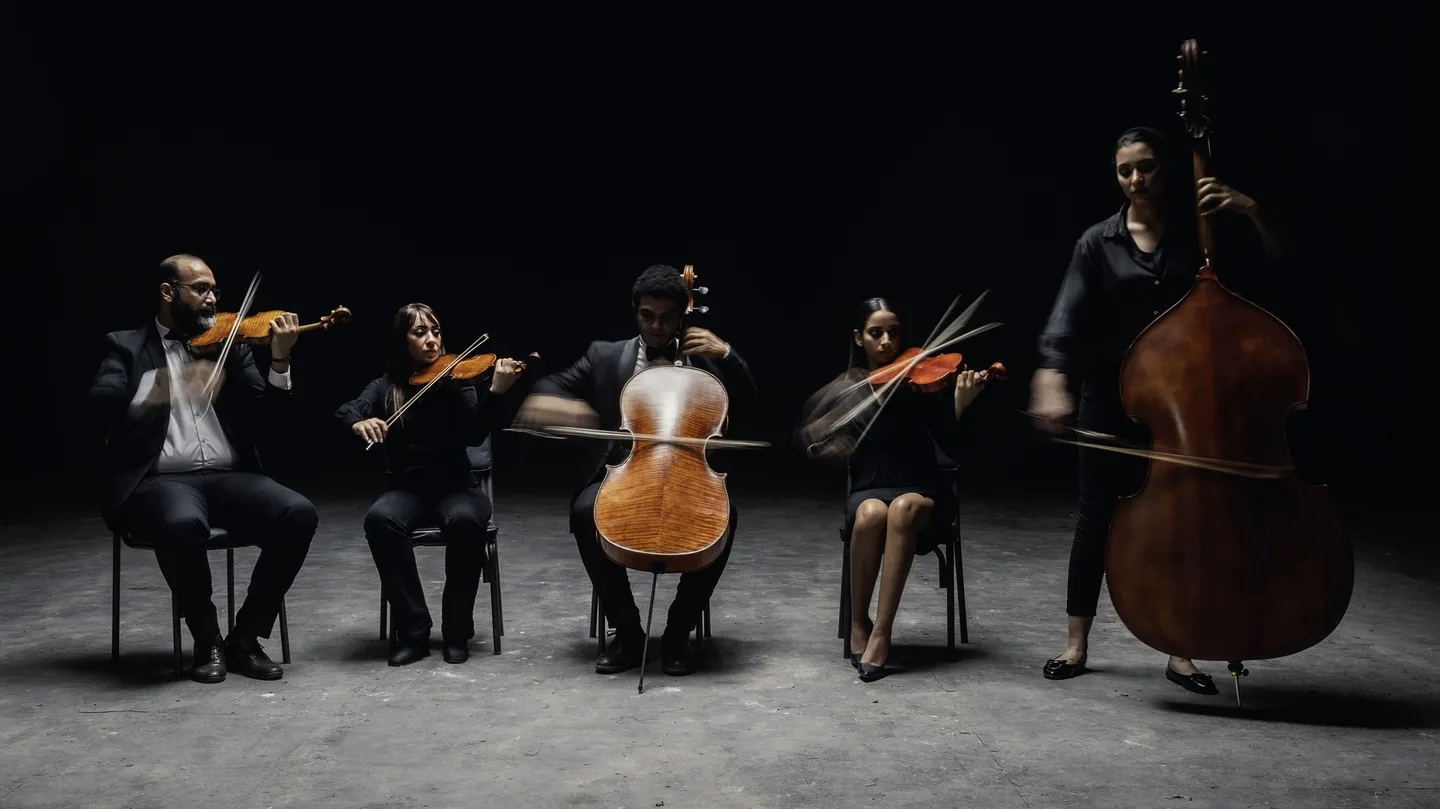
Staccato
About artwork
Provenance
Tech info
About
“Staccato” is a live performance featuring a sextet of strings and piano. It was created in 2024 and has a running time of 2 minutes and 56 seconds. Concept: This piece examines how the stripping away of attributes from vibrant bodies renders them identity-less, exploring the concept of identity. It communicates our inner thoughts and the futility of perpetual toil, with abrasive scratches akin to fossils desperately trying to resurface but hindered by the weight of life’s troubles. Format: “Staccato” features a sextet with strings and piano. Seven musicians take the stage, their footsteps serving as the opening notes of what’s to come. In an inverted horizontal position, the musicians hold violins, violas, cellos, and double basses on their shoulders, showing the instruments’ backs to the audience. The idea of the hollow, inflated body is questioned by the smooth wooden mask that resembles a faceless visage, similar to the ambiguous entity in Max Ernst’s painting “The Emperor”, which bears a resemblance to a double bass on a thin metal pin during a performance. With their unique musical backgrounds, string musicians struggle with their identity, as their instruments lack strings, which are essential for self-expression. The musicians create a wooden rasping sound by playing their pieces with the backs of their stringless bows against the reversed surfaces of their instruments. Once their identity is removed, the material returns to being dry wood and produces a creaking sound when touched. By naming the performance “Staccato”, Al Tawil draws connections to Eugène Ionesco’s absurd play “The Bald Soprano”, which features neither a singer nor hairlessness. Likewise, “Staccato” immerses listeners in nature’s scribblings, revealing the true essence of its materials and offering a critical perspective on modern materialism. * part of "Sameh Al Tawil: The Monograph" book by Fatma Ali ISBN: 9789778800388






















